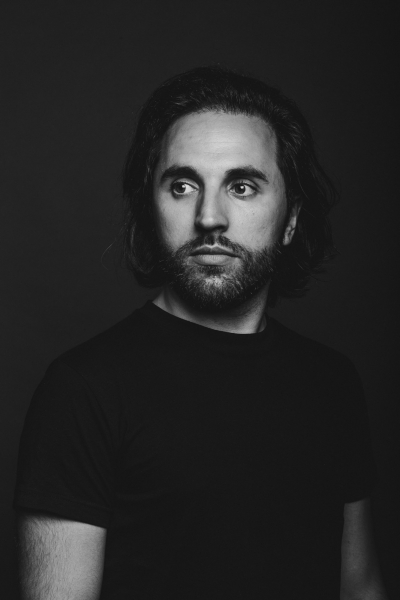Spanish pianist/composer Hugo Selles sent me his debut album as Psychic Equalizer,
Memories From a Cold Place, back in 2012. Still in his early twenties at the time, I knew he was an artist I wanted to follow. In the years since then, I have been nothing but impressed with his artistry and versatility as well as his humanity. We did an
interview in January 2020, but Hugo has released an amazing body of work since then, so I thought it was a good time to do an update. Enjoy getting to know this outstanding artist a little better!
KP: Happy New Year, Hugo! I hope your year is off to a great start!
HS: Hello Kathy and Happy New Year to you, too. It’s a pleasure to be interviewed again for Mainly Piano – that’s already a great start!
KP: Wonderful! What are some of your musical plans for 2024?
HS: In terms of albums, I have some really big projects for the next couple of years. I'll be independently recording/releasing five or six different albums with several different ensembles (two already recorded!). My biggest goal for this year is to record my most ambitious solo piano album to date - a classical one, featuring music by Beethoven, Bartók and myself. I’ve totally embraced classical piano composition again. The root for this sudden interest comes from having found my own pieces from when I was 8 to 14 years old. I’ve kind of reconnected with myself in that sense. I want to include Beethoven and Bartók because their music had a tremendous impact in my childhood and teenage years. And after this whole bunch of albums, I’m really thinking of taking a bit of a break from recording. I’m starting to feel the exhaustion from doing almost everything by myself. Maybe that break will only last for a couple of months or it might last for as much as two years... Who knows? We will see!
KP: Don't burn yourself out!
I just noticed that Spotify has a playlist of your music - 2 1/2 hours and 42 tracks! What a great way to get acquainted with your music! Did you initiate the Playlist? Did you have any control over which pieces were included?
Here's the link to the playlist.
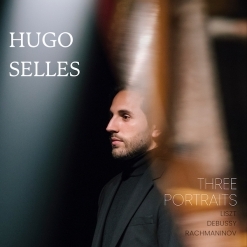
Click on album covers to
go to Kathy's reviews.
HS: I did not know about that! Sorry to say, but I have no control over what’s in that playlist, which is a shame. The algorithm decides I guess... On the other hand, I have made my own playlists for people who would like to get acquainted with what I do. You can find them on my Spotify artist profile and also on Tidal. I have divided my music into three different playlists, for as you know, I have released albums in quite a variety of genres. One of the playlists is focused on solo piano: proper classical repertoire and some improvisational and jazzy stuff. Another playlist showcases my work in the fields of soundtracks, world music and ambient electronic. The third playlist features some music with my prog-rock band Psychic Equalizer. There’s also a YouTube playlist, including music from some of my others projects too.
Here’s the link if anyone’s interested.
KP: It's been four years since we did our previous interview, and I've reviewed seven of your albums since then. They have literally been all over the map musically. Let's start with your most recent release, Melancholic Miniatures, your fourth album for 2023. It's a collection of of thirty-six piano solos by twenty-five composers who were born as early as 1810 (Robert Schumann) and two that are still alive (Thomas Newman and Arvo Pärt). The composers were born in countries all around the world, but the vast majority were/are European. How did you choose such an interesting and diverse selection of pieces?
HS: Perhaps you have noticed it too, but it seems like 90% of every new classical album that is being released is just a repetition of the very same pieces that we’ve performed or listened to for years. I’m not saying that’s wrong, absolutely not! I also do it myself. But the appeal on Melancholic Miniatures is to showcase music from unknown composers or less-known music by very well-known composers. I threw some famous stuff in there too, but that’s because of a second reason. All the music I’ve included in this album is music with which I’ve had a very special emotional connection for the last couple of years. Most of it is in fact quite melancholy, but it has helped me to get through some rough patches. I guess this album also comes to show the incredible therapeutic power of music. I sit in front of the piano for 4 or 5 hours a day and then I forget about everything else. When you think of it, it is such a magical thing actually. I imagine it also happens to you or to most of the musicians you’ve interviewed.
KP: Oh yes! I love those moments of being in a totally different place and time. It's almost like a short vacation! The music on the album is so varied that I am also curious to know how you chose the playing order of the pieces.
HS: That was tricky, definitely! The album was originally going to be about half the length that is now. I recorded a first set of pieces one day in January last year. Right after that, I was “forced” to put it on hold as I had other important things that required my total attention, such as performing Rachmaninov’s 2nd Piano Concerto again. By the time I looked back into it, I had been practicing a whole new bunch of pieces which could fit perfectly well in the album. So I thought, why not? Let’s do another recording session! And then I ended up with aaaaallll this music and the hard task of coming up with a playing order. Let’s start and finish with the same composer, Sibelius, I thought, to give it a circular feeling. Particularly the last piece, the longest of them all, has that bittersweet feeling - a kind of mix of peacefulness and sadness. A perfect ending I believe! I also thought it was a good idea to put the Schönberg pieces in the middle, so we kind of walk into atonality and get back to more usual harmonies in the second half of the record. The rest of the album, although it might seem a bit random, follows my own perception of moods and contrasts.
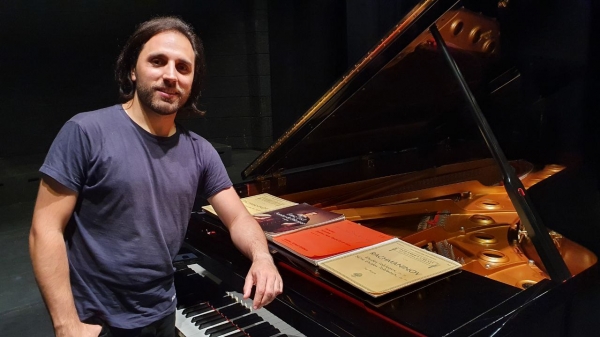
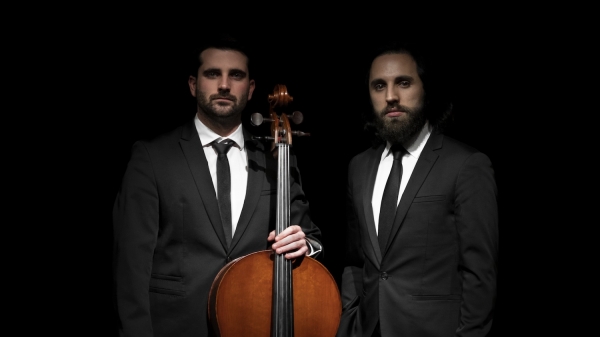
Duo Otero
KP: That really makes sense. Two of your albums released in 2023 were classical. The first was Three Portraits, which features piano solos by Liszt, Rachmaninov and Debussy. Again, how did you choose the music for the album?
HS: That album has been a turning point for me, personally, emotionally and artistically. For many years, I could not see the point of recording classical music despite it being the main source of income and live performance opportunities for me. Although I had released some classical pieces in some of my albums, I hadn't done a full album dedicated to let’s call it “standard” repertoire yet. I’ve also released classical music recordings with Duo Otero, but as it was in a chamber music setup - it kind of made sense for us in order to develop as an ensemble. Anyway, I finally gathered the courage to record this album and I can assure you choosing the repertoire was extremely hard. I just couldn’t decide! There’s so much great music in history and even greater recordings... It’s a bit daunting I must say. I’ve been playing some of the pieces on the album for 20 years or more, while others I learnt specifically for the project. I love Rachmaninov’s music even more as the years pass by. To say he’s my favourite composer might be too much, but I certainly share a profound bond with his music. That’s why it was clear to me that I had to include some of his music. I even considered making an only-Rachmaninov album, but I gave up on that idea after a couple of concerts in which I realized how much I enjoy playing Debussy and Liszt. It’s interesting how there’s some music you feel more comfortable with when performing live. I definitely didn’t feel that way with Mozart's music for a very long time, but fortunately that has changed! Anyway, it was a real challenge to record this album and I’m satisfied with what I achieved. Most of the pieces are very demanding technically and mentally, and while I’m not a hundred per cent happy with the final result, it has helped me realize about the importance of recording this kind of music. In addition, I got some terrific reviews for it! All of them outside of my home country though...
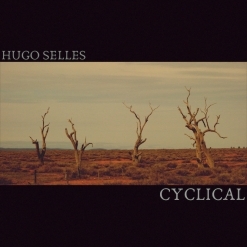
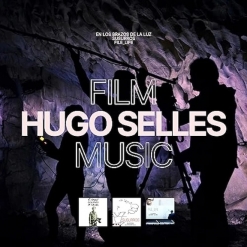
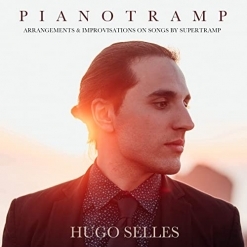
Click on upper and lower
album covers to go to Kathy's reviews.
KP: Hmmm - that seems strange! In between those two albums, you released Cyclical, which has nine tracks that are each dedicated to people and places that are close to your heart. You composed all of the music on that album, and the music seems exceptionally personal. You play piano, keyboards and hand percussion instruments on the album, and it also features several other artists including India Hooi's vocals and an assortment of different instruments as well as guitarist/sitarist Jorge Granda. Did you compose the music specifically for this album or is it a collection that evolved over a period of time?
HS: I cherish that album so much; thanks for mentioning it. It was a totally unplanned project but it really helped me carry a torch of optimism at a very complicated period in my career. In the spring of 2022, I contacted my dear friends Jorge Granda and Esteban Bolado - both exceptional musicians in their own genres. I told them that I had some musical ideas in which I could use their expertise and everything seemed to fall into place! It was really fun to exchange ideas and see the songs evolve into what they are now. While I might have written most of the main ideas, their arrangements and help in the development of the tracks was rather substantial – so was India Hooi’s magnificent input. She’s always willing to help me with every single project I have. Such an incredible privilege I must say! I can’t remember if it was prior to the main recording session in August 2022 or afterwards, but I decided to include a couple of pieces that didn’t make it into my previous albums. And of course, I also counted on another great bunch of wonderful musicians, including Psychic Equalizer’s virtuoso guitarist Carlos Barragán and my duo partner, cellist Miguel Díez. The album explores my own ideas of a global music, one that doesn’t belong anywhere but belongs to everyone. The title comes from my own experience of life having its ups and downs. All the while life goes on with achievements and great moments of love, family and friendship. As you have mentioned, it’s indeed a very personal album, but at the same time I think anyone could identify with the feelings expressed in the tunes.
KP: Several of the tracks on Cyclical are about environmental issues, something I know you care deeply about. Your music is certainly a great way to make people all over the world more aware of what is happening as well as for expressing deep emotions in your music. How do you approach expressing an opinion when you compose?
HS: It’s quite tricky when talking about instrumental music, particularly nowadays. If you have lyrics, you’ve got almost 60 or 70% of the job already done - although it’s true that lyrics are quite often misinterpreted. I also think the streaming industry has created a way in which we consume music without a context at all. That only contributes to the real message behind any creation diluting into a mass consumption of entertainment, rather than generating a listening experience based on an honest appreciation of art and the hard work that’s been put into it. So, as much as I might try to use common compositional elements such as harmony and instrumentation to capture certain feelings or recreate some particular emotional atmospheres, or even to take advantage of the great technological progress in terms of mixing, sometimes I feel my original idea is perceived in a totally different way from how it was intended. Obviously, there’s nothing new about this. It has always happened. There’s a certain degree of subjectivity in the act of listening to any piece of music. Still, some of my worries are shared by many colleagues I’ve talked with: there seems to be a short attention span in the general public and a lack of interest in finding things or even being persuaded to think about truly deep or philosophical things in music. Anyway, sorry I went a bit off topic.
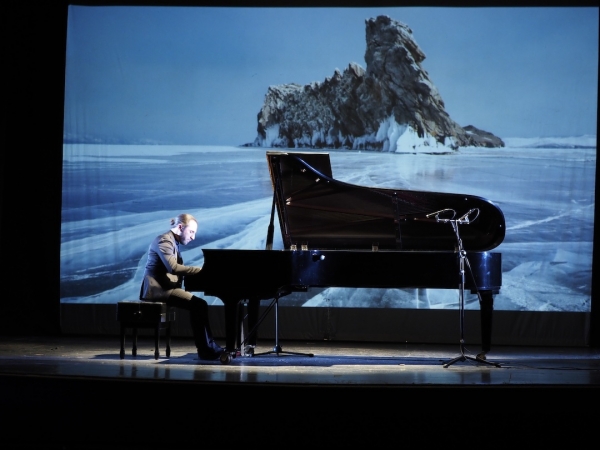
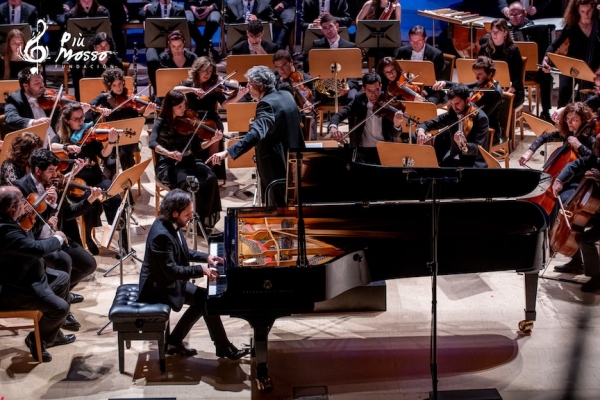
KP: Not at all. It's really interesting, because I've been sensing a lot of what you were talking about, too. It's very disturbing.
HS: Getting back to what you asked about, some ideas require more complex musical structures while others are best represented in a very simple way. It’s hard to explain how or why whatever element depicts something better than another one. Let’s say a composer has an amount of resources, which can make an almost endless list nowadays, and then finds his/her way to create a distinctive dictionary of musical transcriptions of ideas, landscapes and sentiments. So, I guess that year after year, like any other composer, I’m just creating my own alphabet by using old ingredients and testing new ones.
KP: That's really interesting! The other album you released in 2023 is Film Music, which I haven't reviewed. Tell us a bit about that album, too.
HS: None of the music in this album is new - it’s simply a compilation of three soundtracks I wrote years ago. I just felt it was a pity I hadn’t made all of that music available on platforms before. The first soundtrack is from 2013 and features saxophonist Marina Moyà, with whom I have played many times. Let me say the classical repertoire for sax and piano is amazing and extremely difficult! Anyway, the score was written for a documentary film about painter Enrique Gran. The second one was also written for a documentary which tells the story of the discovery of some prehistoric paintings in my region. As you might know, Cantabria is known for the vast amount of art found in caves, the most famous one being Altamira. The third soundtrack is more experimental, as was the film that it was composed for, and finds me mixing detuned pianos with lots of synths, drones and a big variety of noises.
KP: One of the albums you released in 2022 was Pianotramp, your arrangements and improvisations on ten of the songs by the British rock band Supertramp. What inspired that album (other than being a fan of their music!)?
HS: Mainly being a fan of their music! They released some really fantastic material back in the 70s. It’s a shame the main composers don’t get on well and they are, I want to believe unintentionally, managing to make Supertramp’s catalogue vanish. Sad and silly. When you think of other successful bands from the same period, such as Queen or Pink Floyd, they are still massive today. With Pianotramp I didn’t want to simply release a bunch of piano covers that are almost literal transcriptions of their songs – a trend amongst pianists which I don’t personally enjoy. I wanted to create something different and unique by putting them into my own perspective - while respecting the originals, of course.
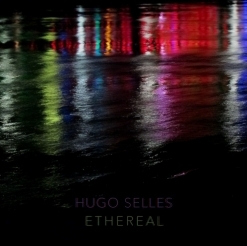
Click on album covers to
go to Kathy's reviews.
KP: Have you had any feedback from any of the band members?
HS: Not really. I have had some really nice feedback in general, though. Some ugly comments in social media, too. You know how it is these days, anyone can say anything at any given moment without caring about the consequences. Anyhow, I think the overall reception has been rather good and it’s an album that has helped me to get more attention and increase my numbers on several platforms. Not that I particularly care much about numbers, but I won’t deny it’s nice to feel more noticed and valued for one’s work.
KP: Of course! You also released Butterflies in 2022, a collection of seven pieces inspired by the paintings of Sara Fuentes. Each title is the word for "butterfly" in a different language. What gave you the idea for the album?
HS: The paintings. They are stunning. As simple as that.
KP: How did you choose which language to use for each title?
HS: Unlike other things we have talked about, this was done in a totally random way. I just looked up butterfly in several languages, listened to how they were all pronounced and then decided what fit what.
KP: From the title and album cover, I fully expected the album to be very light and carefree. It is instead rather dark and often mournful, but very heartfelt and beautiful. I always think of butterflies in relation to beauty and freedom. Why is the album so sad? Don't get me wrong - it is one of my favorites of your albums - I was just surprised at the overall feeling of the music.
HS: Thanks! I like it too. Many people have told me how much they love it. It’s indeed very beautiful – and I don’t say this because it’s my own music. In regards to your question, I think the album is more about the paintings than about butterflies themselves. I found those paintings to be so delicate and fragile, as if they could be broken apart within seconds, a bit like a shy and solitary person in a fast moving world. Maybe a bit like real butterflies too. They are facing the risk of extinction almost everywhere in the world. There’s a very thin line in the natural balance of every ecosystem of our precious planet, a dividing line between total disaster and nature simply following its course. We humans are responsible for putting more weight on the first part. I don’t want to sound preachy, but by doing that we are digging our own grave, too. That’s why the album is not really about butterflies, but more about them being an example of an extremely beautiful creature - or we could even say, about a truly wonderful and beautiful concept - that goes unnoticed in a world that only consumes and consumes. It perceives time in a whole different way that doesn’t allow anyone to even have the intention to care about these kinds of things. I’m sorry if it’s such a depressing thought, but that’s just how I felt when I recorded it.
KP: I'm glad I asked! That explains it very clearly.
Over the past several months, it seems that you have had a much more active presence with links to new videos on Facebook, which seems like a great idea. Has that brought more interest to you and your music?
HS: Yes it has indeed. I guess I’ve finally realized how important it is to share content in social media. I always did share stuff of course, but I’ve certainly become more organized about it. I also like to share music or other forms of art which aren’t mine. That has been a particularly rewarding experience, I have to say. People engage a lot more with my own content afterwards. Even if it seems like a smart marketing move from my side, I sincerely didn’t start doing it with that intention – but I’ll surely keep doing it this year!
KP: Are you back to performing live more often again?
HS: I haven’t really stopped performing live, but since Covid, or more precisely after the pandemic gave us a break, getting concerts has turned out to be an obstacle course. I wish I could play live more. I’m at home on a stage. I rarely get nervous and I try to make my concerts as entertaining as possible, with video projections, explanations about the music I’m performing... I normally make a joke or two, too. Mainly “dad” jokes though.
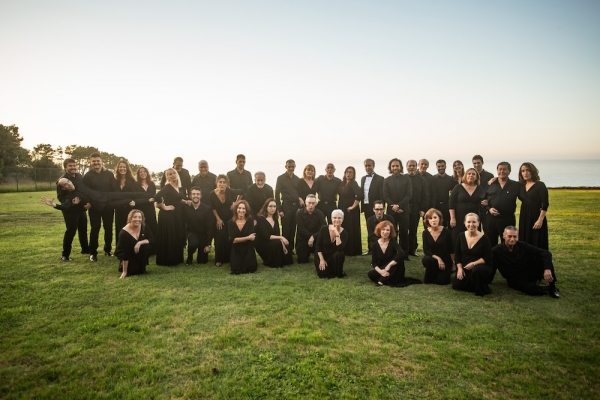
With Camerata Coral (Hugo is the 9th from the right).
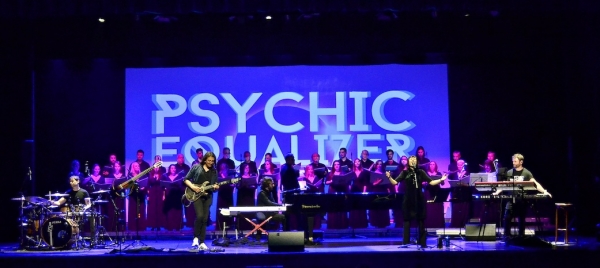
Performing with Psychic Equalizer
.
KP: I really hope to be able to see you in concert sometime!
HS: I would love to perform in the States. In fact, as you know pianist Kristina Socanski and myself have been touring Spain and Norway last summer with a new project. We basically split a piano recital into 3 parts. We perform separately the first two and then we join in as a piano duet for the last one. We've been looking into going to other countries outside of Europe, but all the paperwork and bureaucracy seems rather complicated...
KP: How did the Covid pandemic affect you and your career?
HS: Maybe you didn't know about it but I have suffered from migraines for a long time. Most people aren’t conscious about how badly they can affect your daily life. I don’t know what has happened in my brain, but the lockdown must have been such an extremely stressful situation that it has given me a spin. I know the whole situation has caused a great deal of pain in many families and I don’t want to sound heartless at all, but it has done a lot of good for me. I have gone from 2-3 migraines a month - or even more on really stressful periods - to 1 a year. In fact, I can’t even remember when I had the last one! I don’t look at the future the same way anymore, I enjoy life and music a lot more now – despite some personal challenges.
Unfortunately, as I mentioned in the previous question, being a professional musician is even harder now. I don’t know how it is in the States, but here in Europe it is very complicated, even more than before, particularly in a country like Spain. You would expect that after the pandemic things would go back to normal or improve somehow. Quite the opposite. I talk with fellow musicians and other artists in Denmark, France and UK (oh well, sorry, technically that’s not Europe anymore...) and they find themselves in a similar situation.
KP: In our last interview, we chatted about your first concert in New York, which was upcoming. How did that go?
HS: Oh, I forgot about that! Did we? Time seems a bit blurry since 2020. That concert had to be postponed so many times that it gets confusing. You’re right. It was supposed to have taken place in 2020, but the lockdown forced us to cancel our trip to New York. Then we re-scheduled it for late 2020 I think, then again for 2021. And finally for April 2022. Anyway, at the end it never happened. It was four of us, two pianos and percussion. The program was terrific. I still find it sad we didn’t get to perform it. When we were finally able to do it, we all got covid. Just a week after, United States changed the rules about venues and the use of masks. To make it a little more depressing for me, the two or three months afterwards escalated into a series of more cancellations in other countries due to a bunch of very unlucky situations. By the end of that year I was at a very low point. Even more because I wanted 2022 to be very special. I was celebrating the tenth anniversary of my first album release and I could only offer audiences less than half the concerts I had planned to. I guess you can now understand why I’ve been releasing a considerably big amount of somber music. But on a more positive note, now that I think of it, I recorded Three Portraits just a couple of months after coming back from New York. Not bragging at all, but I’m amazed how much I managed to get done despite the distressing situations.
KP: What a shame and disappointment!
I know you are very busy, but what do you like to do in your free time?
HS: Even though I’m a little bit like the stereotype of an eccentric musician who only does music, even in his free time, with everything that has happened, I’ve finally learnt to make more time for other things. I enjoy birdwatching, a passion I had put aside for too long. I love taking long walks in nature. I’ve found again the pleasure of sitting down and reading a good book. I don’t pay too much attention to news anymore, it only makes me feel bitter and gloomy. I obviously keep myself informed with important stuff every now and then, but don’t engage with it on a daily basis. I actually recommend it - guaranteed peace of mind! And ironically, I listen to a lot more music now. Right now, while replying to your questions I have Ralph Towner and Paolo Fresu’s album Chiaroscuro as background music - a recent discovery. Apart from all of that, I try to spend more time with the people I love and who love me as well. I really like spending quality time with them. Time is precious and I normally don’t have much to spare. So when I do have some free time and somebody wants to also spend some of his/her free time with me, that’s a priceless gift we are giving each other I believe.
KP: Agreed! Is there a philosophy that you like to express with your music?
HS: Absolutely. I think we as humans need to put aside our differences and work more together as a species, to live in peace and to preserve nature. Why put so much effort and waste so much money and time in wars, misery, violence, suffering, injustice, corruption and greed? And if that wasn’t enough, also into the destruction of our planet? Are we crazy or what? I simply don’t get it and I certainly don’t share the current path humanity has decided to walk on. It’s total nonsense.
KP: Again, I agree! Is there anything else you'd like to "talk" about?
HS: Perhaps I should clarify something, as I might have given the wrong impression. Surely, there have been a lot of hurtful moments in my life since our last interview, but I have also had fantastic experiences, particularly in 2023. I got to perform live with Psychic Equalizer again, have had lots of fun sharing the stage with the choir Camerata Coral of the University of Cantabria on several occasions and I have recorded a new Duo Otero album. Also, after a rather long hiatus, India Hooi and I have given a new life to our musical collaboration, Indigo. In addition, a couple more things which I have already mentioned, playing Rachmaninov's 2nd Piano Concerto and touring with Kristina Socanski. Both extremely rewarding experiences. 2023 was a great year actually! Good health, wonderful friends and caring family are on my side. I shouldn’t have anything to complain about. There are people in the world that are unable to enjoy half the things I do - and I’m not talking in a materialistic way. So I should definitely be grateful for all of that!
Thanks a lot for everything Kathy, it’s been a delight to spend the evening replying to this interview and to actually go down memory lane. There were quite a few things I had kind of forgotten about! I wish you and all the readers of Mainly Piano a great 2024! ¡Hasta la próxima!
Many thanks to Hugo Selles for taking the time to do this update! For more information about Hugo and his music, be sure to visit
his website and his
Artist Page here on MainlyPiano.com.
Kathy Parsons
January 2024

